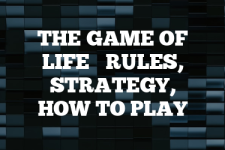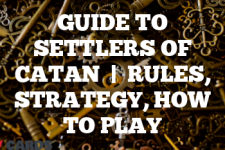Ra – Strategy, Rules, and Winning Instructions
Introduction
I’ve always been fascinated by games that combine strategy, luck, and a bit of historical flavor. One such game that has captured my attention is Ra. Ra is a board game that was designed by Reiner Knizia and first published in 1999. The game is named after the ancient Egyptian sun god, Ra, and the gameplay is deeply rooted in the civilization and culture of ancient Egypt.

The game is played with an auction and set collection mechanism, and it involves a great deal of strategy and planning. The equipment needed to play Ra includes a game board, tiles, and bidding suns. The game board represents the civilization of ancient Egypt, and the tiles represent various aspects of the civilization such as disasters, pharaohs, and monuments. The bidding suns are used to bid on these tiles during the auction phase of the game.
Quick Tip to Win Ra
One quick tip on how to win at Ra: always keep an eye on the Ra track and the number of suns left. These two factors can greatly influence the timing and outcome of the game.
Rules for playing Ra
The rules for playing Ra are relatively straightforward. The game is played over three epochs, and in each epoch, players take turns drawing tiles from a bag and placing them up for auction. Players bid on these tiles using their bidding suns, and the highest bidder adds the tiles to their civilization. However, the game also includes Ra tiles which can trigger an auction whether the players are ready or not. The game ends after the third epoch, and the player with the most points wins.
While the official rules provide a balanced and challenging game, some players like to introduce ‘house rules’ to add variety or adjust the difficulty. For example, some players might choose to play with a different number of epochs or adjust the scoring system.
How to Play Ra
Setup
The setup for Ra involves each player receiving a set of bidding suns and placing their scoring marker on the scoring track. The tiles are placed in a bag, and the game board is set up with the epoch marker on the first epoch and the Ra track marker on the first space.
Gameplay
During their turn, a player can choose to draw a tile from the bag, invoke Ra to start an auction, or use a god tile to take a specific tile from the auction track. If a player draws a Ra tile, an auction is triggered immediately. During an auction, players bid using their suns, and the highest bidder wins the tiles. After an auction, the player’s sun is placed on the Ra track and their turn ends.
End of the Game
The game ends after the third epoch. Players add up their points from their civilization tiles, and the player with the most points wins.
How to Win at Ra
Winning at Ra requires a combination of strategic bidding, careful planning, and a bit of luck. Here are some strategies that can help you win:
- Balance your bids: Don’t spend all your high-value suns early in the game. Save them for later epochs when more valuable tiles are likely to appear.
- Watch the Ra track: The number of Ra tiles drawn affects the length of an epoch. If the Ra track is filling up, it might be a good idea to start an auction before you’re forced into one.
- Plan for disasters: Disasters can wipe out parts of your civilization. Try to have a diverse set of tiles so that a single disaster doesn’t ruin your plans.
Best Strategies for playing Ra
While the strategies mentioned above can help you win, mastering Ra requires understanding the deeper strategies of the game. Here are some advanced strategies:
- Value of tiles: Not all tiles are created equal. Some tiles are more valuable than others, and understanding this can help you make better bids.
- Timing of auctions: Knowing when to start an auction can be crucial. If you start an auction when other players have low-value suns, you might be able to win valuable tiles for a low bid.
- Use of god tiles: God tiles can be powerful, but they also end your turn. Use them wisely to get the tiles you need without giving up too many opportunities to draw tiles.
Scenarios for Ra
Playing Ra involves dealing with various scenarios, both good and bad. Here are some common scenarios and how to handle them:
- Facing a disaster: If a disaster tile is drawn, don’t panic. Assess your civilization and decide whether it’s worth bidding on the disaster tile to prevent it from affecting you.
- Running out of suns: If you’re running low on suns, consider invoking Ra to start an auction. This can help you replenish your suns and potentially win some valuable tiles.
- Dealing with a full auction track: If the auction track is full, it might be a good idea to start an auction. This can prevent a forced auction and give you control over the bidding.
Frequently Asked Questions about playing Ra
Here are some common questions about playing Ra:
- What happens if I run out of suns? If you run out of suns, you can’t bid in auctions. However, you can still invoke Ra to start an auction and potentially win tiles if no one else bids.
- Can I refuse to bid in an auction? Yes, you can pass during an auction. However, if you’re the one who invoked Ra or drew a Ra tile, you must bid if no one else does.
- What happens if all the Ra tiles are drawn? If all the Ra tiles are drawn, the epoch ends immediately. Any tiles left on the auction track are discarded, and a new epoch begins.
External Links
For more information about Ra, visit the official game website here.

A digital native around since the early days of online gaming communities around 2001. An early contributor to the cult gaming site ClanTemplates, Adam has spent years giving free gaming resources to the community. With BoardCards, Adam is most experienced and commonly writing the articles on Strategy multi-player games like Settlers of Catan and Avalon. His first introduction to board games was via Mancala, an Egyptian-origin stone game and one of the oldest known games still played worldwide. Contact me via email



